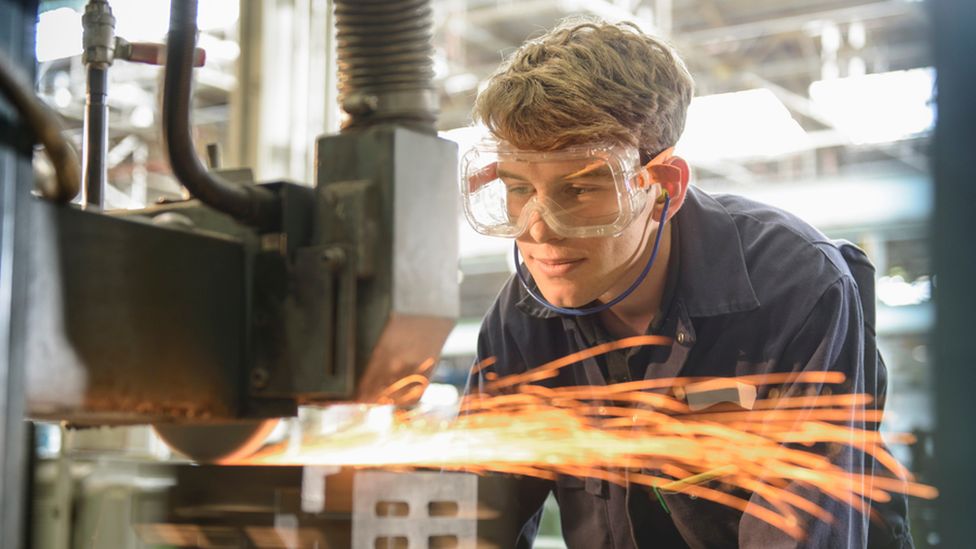
The Office for National Statistics (ONS) said the economy expanded by 0.1% compared with 0.8% in January.
The fall in manufacturing was off-set by growth in the services sector including areas such as tourism and travel.
The ONS also said that the UK economy is 1.5% above its pre-coronavirus pandemic level in February 2020.
Economists had been expecting gross domestic product (GDP) – which measures activity in services, construction and industrial production – to grow by 0.3% in February following the lifting of most Covid restrictions in England at the end of January.
“The pace of the recovery was already going to slow once the post-Omicron bounce faded and the squeeze on household real incomes intensified,” said Ruth Gregory, senior UK economist at Capital Economics.
“But we hadn’t expected it to slow so much so soon.”
Alpesh Paleja, lead economist at the CBI, a business lobby group, said: “Near-term challenges to the outlook have ramped up since, with a growing cost-of-living crunch set to weigh on growth,” he said. “Businesses are also grappling with headwinds from the Ukraine conflict, which is exacerbating cost pressures and supply chain disruption.”
Chancellor Rishi Sunak said he “welcomed” February’s growth figures. He said: “Russia’s invasion of Ukraine is creating additional economic uncertainty here in the UK, but it is right that we are responding robustly against Putin’s unprovoked invasion.”
Semiconductor shortage
The ONS said the fall in industrial production was due to a 5.4% drop in the manufacture of transport equipment “driven entirely by the fall in manufacture of cars”.
It added that production of computer and electronic products had fallen in February.
Barret Kupelian, senior economist at the accountancy firm PwC UK, said: “This is an area other European economies have also been struggling with, because of the semiconductor shortage.
“Manufacturing is also likely to face headwinds due to high energy prices as it consumes above average energy per unit of GDP and we will see this reflected in future data releases.”
The construction sector also contracted but at a slower rate than production industries. Capital Economics said the fall was, in part, “driven by Storm Eunice, Dudley and Franklin resulting in construction projects being delayed”.
The services sector provided the only bright spot in the data as post-Omicron spending on leisure continued, with growth in accommodation as well as travel agencies and tour operators.
Mr Kupelian said growth momentum “shifted towards the sectors of the economy which were hardest hit during the pandemic, including accommodation and food services, activities and arts, entertainment, and recreation”.
He said: “We expect that there is still more growth to come from these sectors.”






